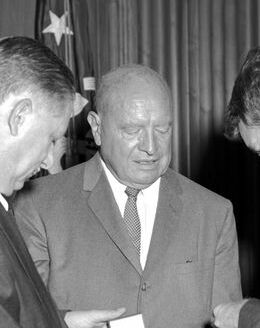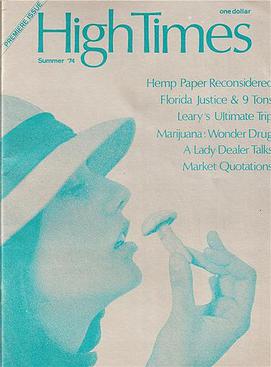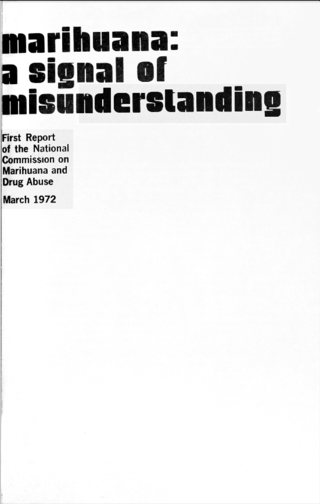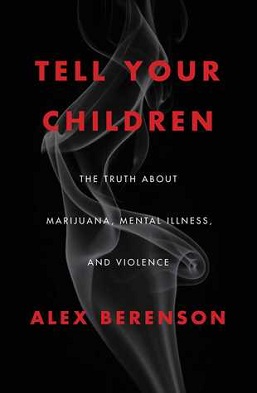Reefer Madness is a 1936 anti-marijuana propaganda film.

Harry Jacob Anslinger was an American government official who served as the first commissioner of the U.S. Treasury Department's Federal Bureau of Narcotics during the presidencies of Herbert Hoover, Franklin D. Roosevelt, Harry S. Truman, Dwight D. Eisenhower, and John F. Kennedy. He was a supporter of Prohibition, and of the criminalization of all drugs except for alcohol, and spearheaded anti-drug policy campaigns.

High Times is an American monthly magazine that advocates the legalization of cannabis as well as other counterculture ideas. The magazine was founded in 1974 by Tom Forcade. The magazine had its own book publishing division, High Times Books, and its own record label, High Times Records.

Stoner film is a subgenre of comedy film based on marijuana themes, where recreational use often drives the plot, sometimes representing cannabis culture more broadly or intended for that audience.

Irvin Dana Beal is an American social and political activist, best known for his efforts to legalize marijuana and to promote the benefits of Ibogaine as an addiction treatment. He is a founder and long-term activist in the Youth International Party (Yippies), and founded the Yipster Times newspaper in 1972. The Yipster Times was renamed Overthrow in 1978, and ended publication in 1989.

The Shafer Commission, formally known as the National Commission on Marihuana and Drug Abuse, was appointed by U.S. President Richard Nixon in the early 1970s. Its chairman was former Pennsylvania Governor Raymond P. Shafer. The commission issued a report on its findings in 1972 that called for the decriminalization of marijuana possession in the United States. The report was ignored by the White House, but is an important document against prohibition.

Reefer Madness is a 1936 American exploitation film about drugs, revolving around the melodramatic events that ensue when high school students are lured by pushers to try marijuana – upon trying it, they become addicted, eventually leading them to become involved in various crimes such as a hit and run accident, manslaughter, murder, conspiracy to murder and attempted rape. While all this is happening, they suffer hallucinations, descend into insanity, associate with organized crime and commit suicide. The film was directed by Louis J. Gasnier and featured a cast of mainly little-known actors.

Reefer Madness: Sex, Drugs, and Cheap Labor in the American Black Market is a book written by Eric Schlosser and published in 2003. The book is a look at the three pillars of the underground economy of the United States, estimated by Schlosser to be ten percent of U.S. GDP: marijuana, migrant labor, and pornography.
The Hemp Industries Association (HIA) is a non-profit trade group representing hemp companies, researchers and supporters in the United States and Canada. The group petitions for fair and equal treatment of industrial hemp. Since 1994, the HIA has been dedicated to education, industry development, and the accelerated expansion of hemp world market supply and demand.

Larry "Ratso" Sloman is a New York–based author.

"If You're a Viper" is a jazz song composed by Stuff Smith. It was first recorded by Smith and his Onyx Club Boys in 1936 and released as the b-side to the song "After You've Gone".

Victor Licata was an American mass murderer who used an axe to kill his family in Ybor City, Tampa, Florida, on October 16, 1933. The killings, which were reported by the media as the work of an "axe-murdering marijuana addict", were adduced as prima facie evidence that there was a link between recreational drugs, such as cannabis, and crime. This led to the killings being used in 1930s anti-drug campaigns against marijuana.

Chris Conrad is an American author, activist, curator, publisher and court-recognized expert in cannabis cultivation and use. He has played a key role in the shaping of the modern industrial and medical cannabis reform movements as the author of such seminal books as Hemp: Lifeline to the Future (1993) and Hemp for Health (1997), as well as through his activist work as the co-founder and first President of the Hemp Industries Association (HIA), founder of the Business Alliance in Commerce and Hemp (BACH), and a signature gathering coordinator for the Proposition 215 volunteer effort which made California the first US state to legalize the medical use of cannabis. The December, 1999 issue of High Times ranked Conrad #10 on its list of top 25 "living legends in the battle for legal cannabis."

Cannabis in Florida is illegal for recreational use. Possession of up to 20 grams is a misdemeanor offense, punishable by up to a year in jail, a fine of up to $1000, and the suspension of one's driver's license. Several cities and counties have enacted reforms to apply lesser penalties, however.
E-Z Wider is a brand of rolling papers introduced in 1972 by Bob Stiller and Burton Rubin, the name is derived from the 1969 film Easy Rider. The rolling papers were initially designed to be used for smoking marijuana.

Tell Your Children: The Truth About Marijuana, Mental Illness and Violence is a 2019 book by Alex Berenson. In it, Berenson makes claims that cannabis use directly causes psychosis and violence, claims denounced as alarmist and inaccurate by many in the scientific and medical communities. The scientists state that Berenson is drawing inappropriate conclusions from the research he cites, primarily by inferring causation from correlation, as well as cherry picking data that fits his narrative, and falling victim to selection bias via his use of anecdotes to back up his assertions.
Mary Elaine Gennoy was an American activist for LGBT rights, disability rights, and marijuana legalization, based in San Francisco.













